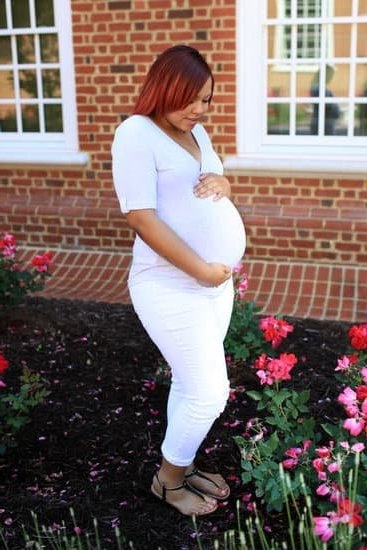Introduction
Most expectant mothers begin to wonder if they are pregnant shortly after they miss their first period. There are a few signs of early pregnancy you can experience, including tender breasts, fatigue, frequent urination, morning sickness, and a change in your sense of smell. However, these can be signs of other things as well such as PMS or stress. There are some reliable ways to determine if you are pregnant sooner than waiting for your missed period.
Perhaps the best way to know for sure is with a home pregnancy test (HPT). HPTs work by detecting a hormone called human chorionic gonadotropin (hCG) in women’s urine once an embryo has implanted in the uterus. Pregnancy tests can detect hCG levels as low as 25 mIU/mL and are over 97% accurate when used correctly. Urine tests usually take three to four days after implantation for the hormone to reach high enough levels for detection, although some HPTs have been known to detect hCG levels earlier. Home tests also eliminate any worry about accidentally being seen at the doctor’s office taking an OB-GYN provided test.
Another way is through a blood test which looks not only for hCG but also different types of hCG indicated at different stages of fetal development by measuring specific hormone levels at exact points during gestation. It is slightly more sensitive than regular HPT’s and is recommended between 16-18 days following conception with results available within 48 hours after having had multiple samples taken from different times during this period.
Although it is possible to get an accurate result from most HPTs even before a missed period, confirming a positive pregnancy result should be done either by follow-up blood test or visiting your healthcare provider so additional prenatal monitoring can be put into place at that point.
Common Symptoms
Common symptoms that can indicate pregnancy include nausea and vomiting, fatigue, sore breasts, food cravings or aversions, an increased need to urinate, constipation, and light spotting. Some women may experience more pervasive symptoms such as an elevated body temperature, heightened sense of smell and taste, changes in vision such as hyper-sensitivity to light, joint pain and soreness or aching muscles.
The most common sign of pregnancy is a missed menstrual period; however, this can be caused by other factors such as stress or illness. Pregnancy tests are available at pharmacies that measure the level of hCG (human chorionic gonadotropin) hormone present in the urine. Levels of hCG increase rapidly during pregnancy so this is the most reliable method for determining whether you are pregnant or not. Home pregnancy tests are quick and reliable but they are typically more accurate if taken a week after a missed period. Other confirming methods may include an ultrasound or laboratory blood test.
Diagnosing Pregnancy
It can often be difficult to determine when you should take a pregnancy test. Most women wait for a missed period before determining if they are pregnant or not. For many women, this is around two weeks after conception, however, it varies from person to person.
Aside from waiting for a missed period, some signs that may indicate you are pregnant include swollen and tender breasts, food cravings or intense hunger, fatigue, frequent urination, increased vaginal discharge and morning sickness. However, these symptoms could occur due to other factors such as stress or changes in diet so do not rely solely on them as an indicator of potential pregnancy. If you experience any of the above symptoms and believe you may be pregnant then it is advised that you take a home pregnancy test that measures human chorionic gonadotropin (hCG) levels found in urine. hCG is the hormone produced in the placenta during early pregnancy and it begins to rise soon after implantation has taken place which usually occurs around ten days following ovulation. Home pregnancy tests typically detect levels of 25 mIU/ml or higher and while there are accurate tests available with much lower thresholds of detection (10 mIU/ml or less) they fail to offer true clinical sensitivity required to support positive patient outcomes.
The takeaway here is that taking a home pregnancy test as soon as possible once your period has been missed will provide the most accurate results. Remember that no matter what those results say it’s still best practice to follow up with your healthcare professional for more reliable advice and confirmation of any potential pregnancies present so don’t hesitate – book an appointment today!
Time Frame
It can take some time for a woman to know if she is pregnant. Generally, it takes about one to two weeks after conception for an embryo to attach itself to the uterine wall and for the body’s hormone levels to fluctuate enough to produce a positive result on a pregnancy test. Many women suspect that they may be pregnant because of subtle symptoms they experience and will take a home pregnancy test before their first missed period, typically one to two weeks after conception.
However, it is important to note that some women may not show positive results until several days after the first missed period. In other cases, the early signs of pregnancy differ greatly from those usually associated with pregnancy and are often easily overlooked, making it even more difficult to detect. Morning sickness, increased breast sensitivity and fatigue are just some of the most commonly reported symptoms of early pregnancy. Additionally, as hormone levels continue changing throughout the first trimester, many women begin experiencing cravings and food aversions, frequent urination and mood swings during this time.
Options for Confirming Pregnancy
Most people assume that the only way to confirm a pregnancy is through a home pregnancy test or through a visit to the doctor. However, there are several other reliable methods that can be used to confirm pregnancy.
For example, some women experience certain symptoms in early pregnancy before any results can be seen on a test. These include fatigue, nausea and vomiting (aka morning sickness), breasts that become heavier and more sensitive, increased urination, and changes in food cravings. Additionally, measuring body temperature and tracking menstrual cycles can be beneficial in confirming pregnancy. Basal body temperatures typically increase about 0.4-1 degree Fahrenheit after ovulation has occurred as well as shortly after conception. Lastly, many women will have typical hormonal changes such as an increase in HCG (human chorionic gonadotropin) which lead to noticeable physical changes that indicate the onset of pregnancy even if no test result has been received yet.
Depending on your personal situation, it usually takes anywhere from 2-5 weeks past ovulation to get a positive confirmation of pregnancy via a medical exam or home test kit; however, if you already notice some of the aforementioned symptoms, you may wish to follow up with your doctor sooner than that.
Take-Home Message
If you suspect you might be pregnant, it is important to take action right away. Even if the results of a pregnancy test are negative, see your doctor for confirmation. Your doctor can make sure that you receive timely and appropriate medical care from the very start of your pregnancy.
Your doctor will likely use a urine test or blood test to confirm that you are pregnant. As soon as there is enough hormone present in your system, a pregnancy can show up on tests as early as two weeks after conception. Urine tests may detect levels of HCG (the hormone produced by the developing placenta) at lower levels than blood tests do, but they are not as accurate in early pregnancy and present more chances for false negatives and positives. A blood test can confirm a pregnancy several days earlier than a urine test.
It is important to pay attention to any signs or symptoms which may indicate pregnancy such as delayed menstrual period, nausea and tenderness of breasts. Additionally, an ultrasound or pelvic exam may provide further confirmation depending on how far along the pregnancy progresses. If you have any questions or concerns at any time during your pregnancy, address them with your doctor to get the best care possible for yourself and your baby-to-be!

Welcome to my fertility blog. This is a space where I will be sharing my experiences as I navigate through the world of fertility treatments, as well as provide information and resources about fertility and pregnancy.





